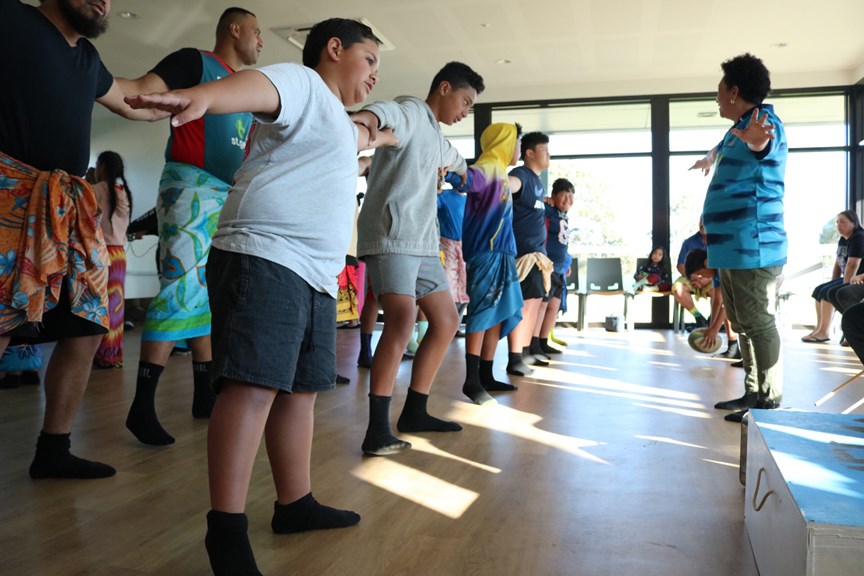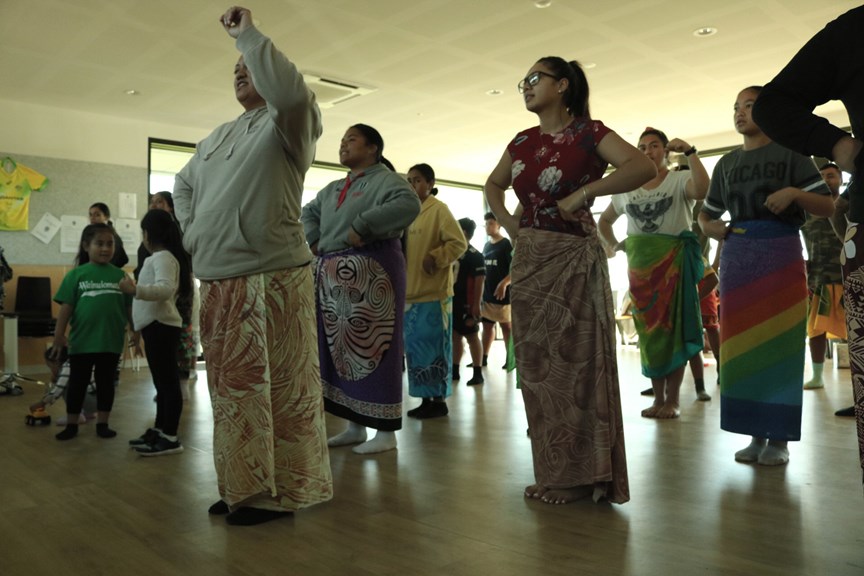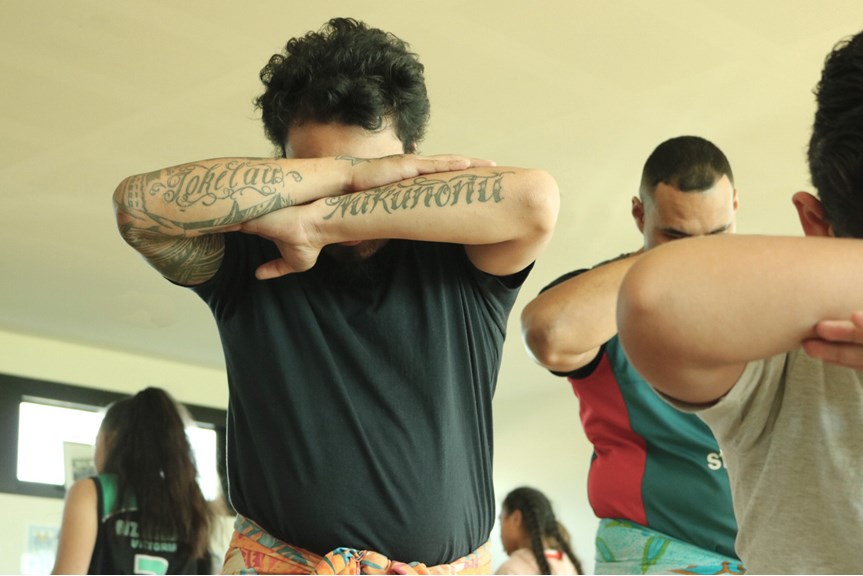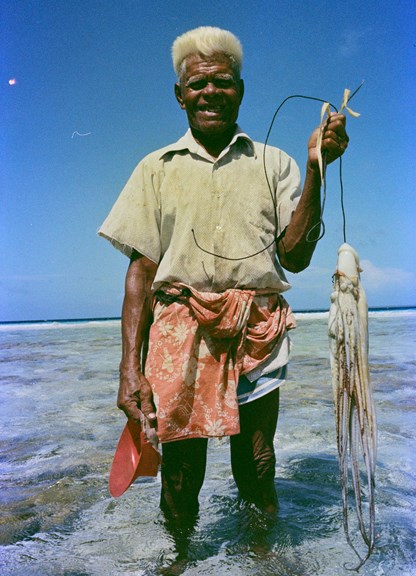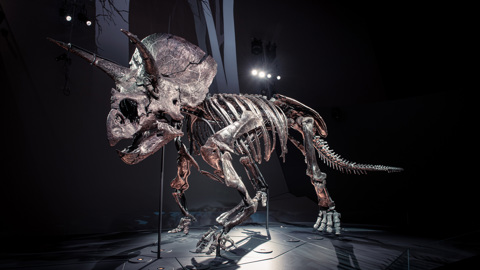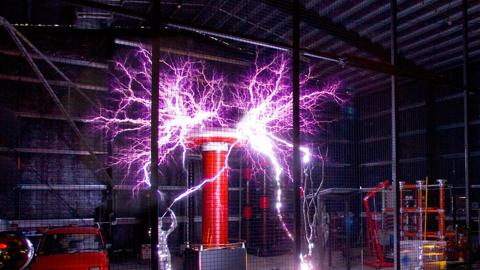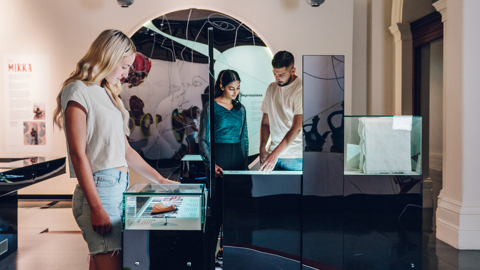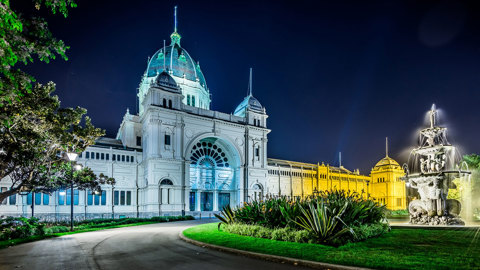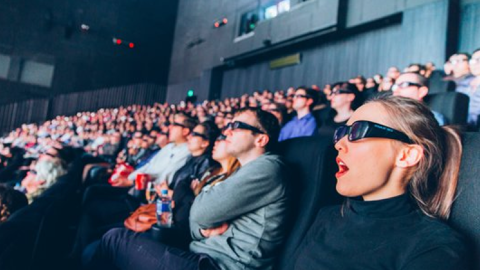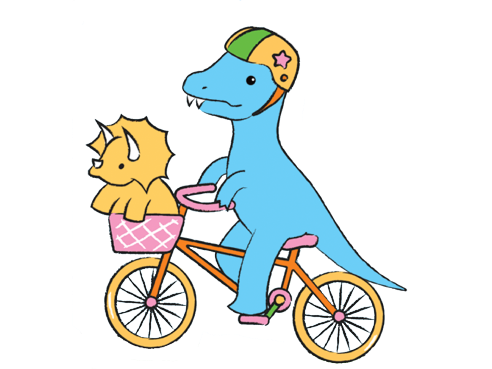Staying connected to home
Lafaele speaks about his family’s connection to Tokelau.
My name is Lafaele Timoteo. My parents both being Tokelauans, my father from the atolls of Nukunonu and my mother from the atoll of Fakaofo, Tokelau. So three atolls make up Tokelau: Nukunonu Fakaofo and Atafu. There’s a village on each atoll. There’s around 500–600 people on each atoll.
Life is good for those there, just as it is for those outside of Tokelau who take pride of being Tokelauan. It’s really important for me because it’s where my parents were born, raised until they’re adults. They emigrated to NZ in ‘66, ‘65 I think, and of course I came a couple years later. In regards to being here in Melbourne, so we’ve been here for about eight years. 2012 we came here and of course, through the networks and the relationships of family, we were, made our stay here in Melbourne a lot more comfortable and it was easy to come here and be a part of a few other like-minded people who wanted to ensure that the identity of our young people—so we thought it was important that our kids learn some aspects of our culture.
Life in the atolls … island life, it’s really, still is a very simplistic life. It’s all based in the village. Because of our connections, that we're pretty much all related in some way, shape or form, you can actually take your ties to anyone on these atolls and pretty much have a connection or a tie ’cause we only came from a small pool. So in saying that, back in the late 1800s, Tokelau was unfortunately came to a halt as blackbirding boats, which is the boats of slave traders, came through and decimated our our small atolls.
We’re very in touch with nature 'cause nature sustains us which is probably why we always pay great respect to the ocean. As climate change affects our relying upon our resources, particularly the sea and of course the people within our community. Everything we used to do was via our fishing or we grew it, and of course once our shop came into existence then we started to import a lot of our food and items.
We don't have a lot of land. We cherish what we have, and more importantly, we want to ensure into the future that our children and our future generations can share the experience and really the fenua | land that they were born on.
